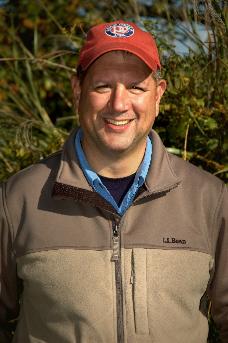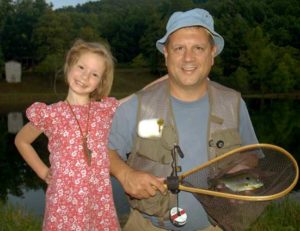
I write a lot — but I’m not just a writer. Indeed, my most important work is done at home, where I am a husband to my wife, Leila, who edits everything I write, and father to Maggie and Jeremiah. I also work as the Director of the Virginia Fly Fishing Festival, held each year in Doswell, Virginia. This family-friendly event is one of the largest fly fishing festivals in the country and draws nearly 2,000 in attendance each year. I’m pleased this year to launch the Texas Fly Fishing & Brew Festival in Mesquite, Texas. With a little luck, this new festival has become the largest fly fishing event in the entire Southwest. After all, it’s hard to beat combining fly fishing and micro brewed beer from the Lone Star State.
As a Christian I believe that we have an obligation to prudent stewardship of the resources God has provided for us, which is why I write so frequently about conservation issues. My family and I attend Saint Patrick Orthodox Church, where any who are interested can learn more about the peace that is available in Jesus.
As an investigative conservation writer, I strive to examine as many sides of an issue as I can to uncover the truth. Although I believe that advocacy journalism has its place, I also believe that the dearth of well-researched, balanced, provocative writing on conservation and the environment does not profit most Americans. I don’t mean to suggest that I have the answers to the environmental questions that confront us — rather, that the answers are often much more complex, nuanced, and elusive than they are made out to be. On any given topic, I attempt to be probing, even-handed, and impartial in my coverage.

Beau’s Rules for Writing
- Accuracy and credibility are the writer’s everything — and are infinitely more important than popularity.
- Strive at all times to charm your editors and publishers, thereby securing opportunities to educate your readers.
- As often as possible, go directly to the source through interviews and primary research.
- Confirm direct quotes with the interviewee before sending a controversial article in for publication — and secure his or her approval of the quote in writing.
- Receive constructive criticism graciously, recognizing that a thoughtful reader does a writer a great service.
- In the face of less constructive — and perhaps even unfair — criticism, refer back to Rule #1.